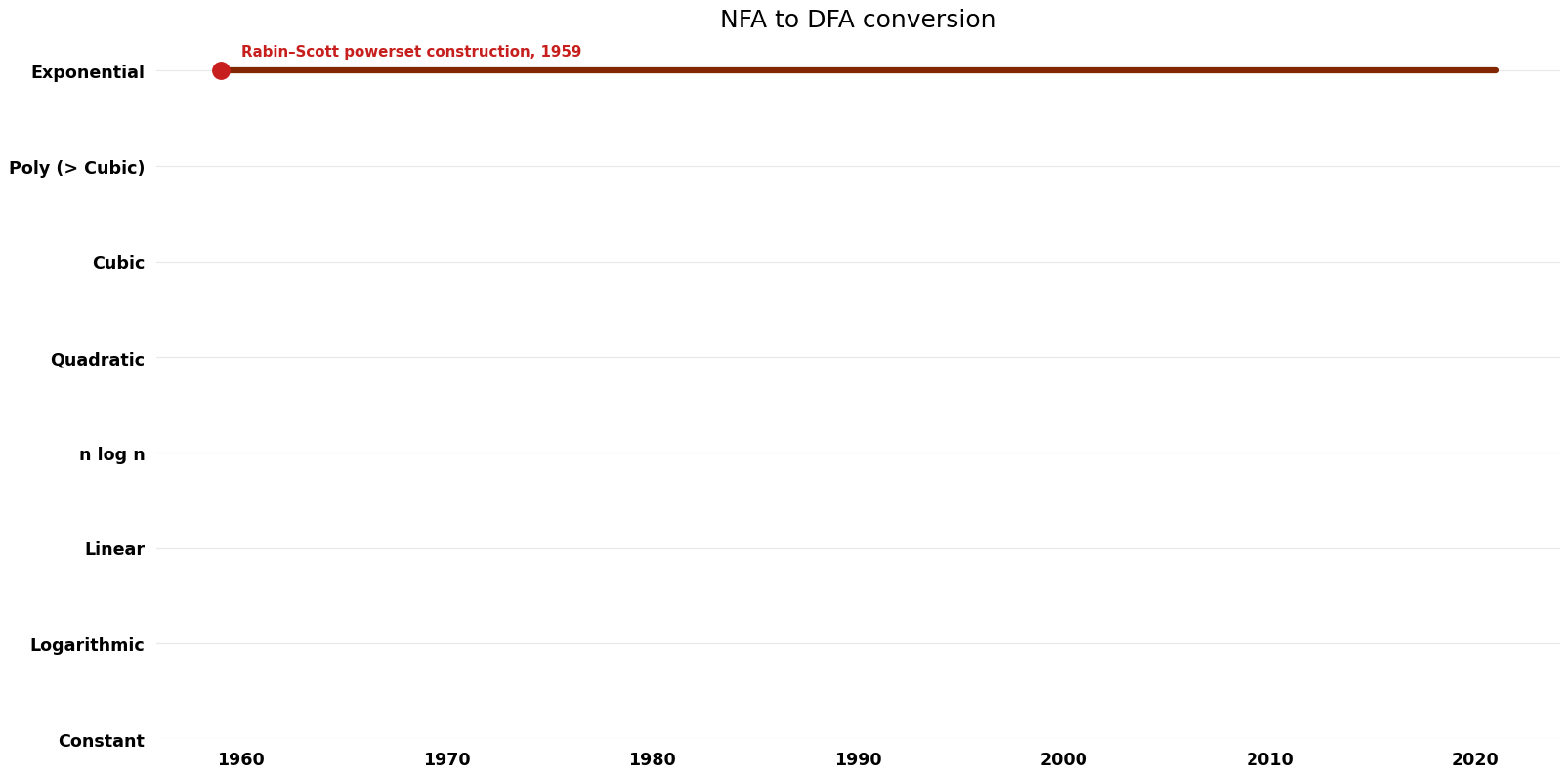NFA to DFA conversion: Difference between revisions
Jump to navigation
Jump to search
(Created page with "== Problem Description== DFA refers to Deterministic Finite Automaton. A Finite Automata(FA) is said to be deterministic, if corresponding to an input symbol, there is single resultant state i.e. there is only one transition. NFA refers to Nondeterministic Finite Automaton. A Finite Automata(FA) is said to be non deterministic, if there is more than one possible transition from one state on the same input symbol. == Bounds Chart == File:NFA_to_DFA_conversionBoundsC...") |
No edit summary |
||
| (6 intermediate revisions by the same user not shown) | |||
| Line 1: | Line 1: | ||
== | {{DISPLAYTITLE:NFA to DFA conversion (NFA to DFA conversion)}} | ||
== Description == | |||
NFA | Convert a given nondeterministic finite automota (NFA) to a deterministic finite automota (DFA). | ||
== | == Parameters == | ||
== | $n$: number of states in the given NFA | ||
== Table of Algorithms == | |||
{| class="wikitable sortable" style="text-align:center;" width="100%" | |||
! Name !! Year !! Time !! Space !! Approximation Factor !! Model !! Reference | |||
|- | |- | ||
| | |||
| | | [[Rabin–Scott powerset construction ( NFA to DFA conversion)|Rabin–Scott powerset construction]] || 1959 || $O({2}^n)$ || $O({1})$ || Exact || Deterministic || [https://ieeexplore.ieee.org/document/5392601 Time] | ||
| | |||
|- | |- | ||
| | |} | ||
== Time Complexity Graph == | |||
[[File:NFA to DFA conversion - Time.png|1000px]] | |||
Latest revision as of 10:07, 28 April 2023
Description
Convert a given nondeterministic finite automota (NFA) to a deterministic finite automota (DFA).
Parameters
$n$: number of states in the given NFA
Table of Algorithms
| Name | Year | Time | Space | Approximation Factor | Model | Reference |
|---|---|---|---|---|---|---|
| Rabin–Scott powerset construction | 1959 | $O({2}^n)$ | $O({1})$ | Exact | Deterministic | Time |
